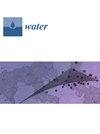A Review on the Optimization of Irrigation Schedules for Farmlands Based on a Simulation–Optimization Model
IF 3
3区 环境科学与生态学
Q2 ENVIRONMENTAL SCIENCES
引用次数: 0
Abstract
Agriculture is the most important sector that is consuming water resources. In the context of global water scarcity, how to use limited water resources to improve water use efficiency in agriculture or achieve maximum crop yield and fruit quality is of great significance for ensuring food and water security. Optimizing irrigation schedules is an effective measure to improve water use efficiency, where crop models also play an important role. However, there is little research summarizing the optimization of irrigation schedules based on crop models. This study provides a systematic review on how to optimize irrigation schedules based on crop models and simulation–optimization models. When optimizing irrigation schedules based on crop models, the selected models are usually mechanistic agro-hydrological models. Irrigation scenarios and optimization objectives are mainly focused on both crop and water aspects, such as maximizing crop yield, fruit quality, water productivity, and irrigation water productivity. Minimizing crop water consumption and total irrigation amounts serve as optimization objectives, and irrigation quantity, irrigation frequency, and irrigation interval serve as decision variables. In saline areas or low fertilizer utilization areas, the optimization objectives and decision variables also involve some indicators related to salt and nitrogen, such as the maximum desalination rate, minimum salt content, fertilizer utilization efficiency, nitrogen fertilizer productivity, nitrogen fertilizer utilization efficiency, nitrogen leaching rate, which serve as the optimization objectives, and the irrigation water salinity, or fertilization schedules serve as the decision variables. When optimizing irrigation schedules based on simulation–optimization models, the models have mainly been upgraded from water-production function to crop mechanism models. In addition, optimization algorithms have been upgraded from traditional optimization techniques to intelligent optimization algorithms. Decision-making techniques are used to make decisions on optimization results. In addition, the spatial scale for the optimization problem of irrigation schedules was developed from fields to regions, and the time scale was developed from the growth stage, beginning with months, and shortening to ten days, then to a day, and then to an hour. This study also provides a detailed introduction to widely used optimization algorithms, such as genetic algorithms, as well as decision techniques. At the same time, it is proposed that the future should focus on improving crop models and analyzing uncertainty in research on irrigation schedule optimization, which is of great significance for the precise regulation of irrigation schedules.基于仿真优化模型的农田灌溉计划优化综述
农业是消耗水资源的最重要部门。在全球缺水的背景下,如何利用有限的水资源提高农业用水效率,或实现作物产量和果实质量的最大化,对于确保粮食和水安全具有重要意义。优化灌溉计划是提高用水效率的有效措施,其中作物模型也发挥着重要作用。然而,基于作物模型对灌溉计划进行优化的研究很少。本研究对如何基于作物模型和模拟优化模型优化灌溉计划进行了系统综述。在基于作物模型优化灌溉计划时,所选模型通常为机理农业水文模型。灌溉方案和优化目标主要集中在作物和水两个方面,如作物产量最大化、果实质量最大化、水分生产率最大化和灌溉水生产率最大化。作物耗水量和灌溉总量最小化是优化目标,灌溉量、灌溉频率和灌溉间隔是决策变量。在盐碱地区或肥料利用率低的地区,优化目标和决策变量还涉及一些与盐和氮有关的指标,如最大脱盐率、最低含盐量、肥料利用率、氮肥生产率、氮肥利用率、氮浸出率等,这些指标作为优化目标,灌溉水含盐量或施肥计划作为决策变量。在基于模拟优化模型进行灌溉计划优化时,模型主要从水-生产函数模型升级为作物机理模型。此外,优化算法也从传统的优化技术升级为智能优化算法。决策技术用于对优化结果进行决策。此外,灌溉计划优化问题的空间尺度从田间发展到区域,时间尺度从生长阶段发展,从几个月开始,缩短到十天,然后到一天,再到一小时。本研究还详细介绍了广泛使用的优化算法(如遗传算法)以及决策技术。同时,提出今后在灌溉计划优化研究中应注重改进作物模型和分析不确定性,这对灌溉计划的精确调控具有重要意义。
本文章由计算机程序翻译,如有差异,请以英文原文为准。
求助全文
约1分钟内获得全文
求助全文
来源期刊

Water
WATER RESOURCES-
CiteScore
5.80
自引率
14.70%
发文量
3491
审稿时长
19.85 days
期刊介绍:
Water (ISSN 2073-4441) is an international and cross-disciplinary scholarly journal covering all aspects of water including water science and technology, and the hydrology, ecology and management of water resources. It publishes regular research papers, critical reviews and short communications, and there is no restriction on the length of the papers. Our aim is to encourage scientists to publish their experimental and theoretical research in as much detail as possible. Full experimental and/or methodical details must be provided for research articles. Computed data or files regarding the full details of the experimental procedure, if unable to be published in a normal way, can be deposited as supplementary material.
 求助内容:
求助内容: 应助结果提醒方式:
应助结果提醒方式:


